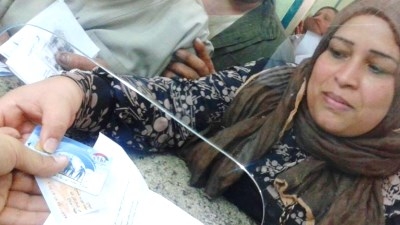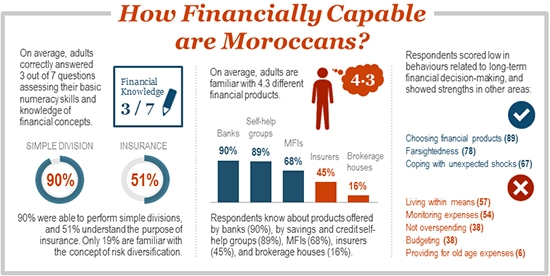Historically, financial inclusion in the Arab region has been low compared to other regions. According to the 2014 Global Findex Database account penetration stands at 29% across the region, well below the 69% observed in East Asia and Pacific. When excluding GCC countries, the outreach of formal financial services in the region stands at 21%, the lowest worldwide. Women are particularly financially excluded with account penetration standing at 24.5%, lagging behind the OECD as well as other non-OECD high-income countries.
Similarly to account ownership, the Arab world lags behind other regions in terms of access to credit from formal financial institutions. With only 6% of adults reporting borrowing from a formal financial institution, credit outreach in the region (when excluding GCC countries) is less than half of most other developing regions globally. Furthermore, although small-and-medium enterprises (SMEs) represent 80% of businesses in the region, only one in five has a loan or line of credit. The available financing options for SMEs are almost in working capital forms, as long term funding for SMEs remains insignificant. Moreover, the SME financing gap in the region is the largest across the world. An estimated ~360% increase of credit is required to close the financing gap across MENA, as opposed to 7-8% in East Asia and the Pacific.
Available figures suggest that there is great potential to expand financial inclusion in the Arab world. The low levels of financial inclusion in the region are the result of unserved demand as the population resorts to informal financial management tools as an alternative to inexistent or poorly developed formal financial services.
Responding to this challenge, policymakers across the region have begun prioritizing financial inclusion through, inter alia, developing national strategies, creating incentives for financial service providers to downscale, developing new financing mechanisms, and improving regulatory and supervisory frameworks underpinning inclusive finance.
In this context, financial consumer protection and financial education have become a topic of interest to both policymakers and financial services providers. In recent years, the Arab region has seen a variety of programs launched by financial service providers, public authorities, and non-governmental organizations aimed at enhancing financial education of low-income consumers. Yet, little knowledge has been shared across the region regarding the efficiency or impact of such programs in fostering improved financial behavior, in better protecting clients, or in increasing usage of formal financial services. Similarly, programs are often piloted in isolation of each other, with little cross-country knowledge sharing to highlight best practices and to leverage existing resources.
This conference will bring together practitioners, researchers, and high-level government authorities to share emerging best practices on developing financially capable communities in the Arab region. The event will present recent empirical evidence on financial education, share best practices of country-level programs, and discuss broader linkages between financial education and economic inclusiveness and development. Emphasis will be placed on assessing efficiency and impact of financial education programs and on ways to develop a regional framework for practical action moving forward.
Conference Organizers:

Sponsoring Partners:


